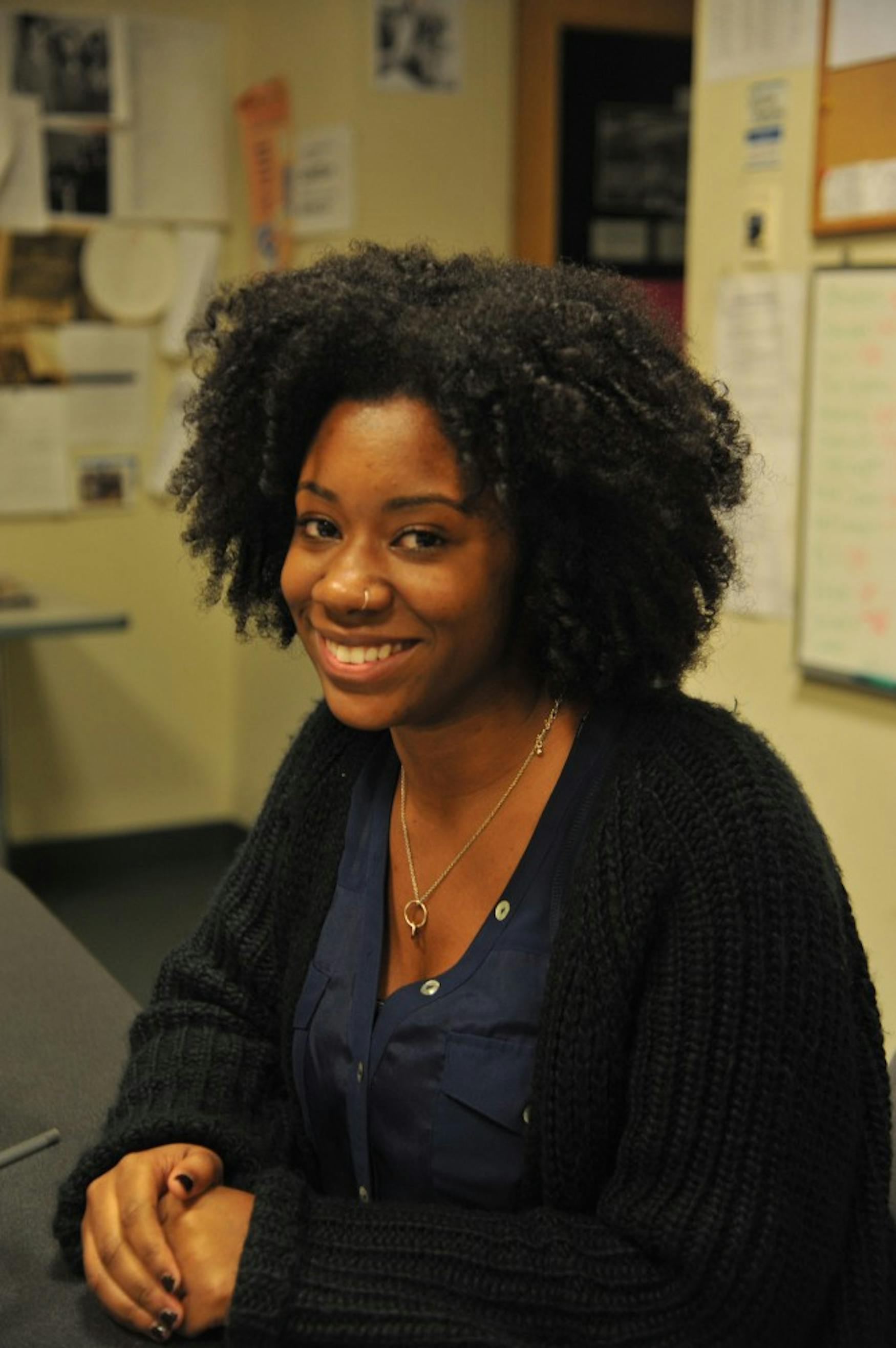Storytelling as social art
Inspired by the JBS storytelling program, Adriana Gleaton ’17 organizes campus storytelling event
Stories — we all have them. Whether inspired by life or by a creative muse, everyone has a story to share, and Adriana Gleaton ’17 seeks to facilitate the exchange of these stories through the Faculty and Student Fall Storytelling Event. Organized by Gleaton in her capacity as director of programming for the Student Union, the event will take place on Wednesday, Nov. 4, in the International Alumni Lounge from 12 p.m. to 3 p.m.
In an interview with the Justice, Gleaton explained that, at this event, students and faculty alike are invited to “tell a story that they’re comfortable with, [a story] that’ll engage the audience, [a story] that will allow them to be themselves on stage.”
Last summer, Gleaton participated in the “Storytelling as a Social Practice” Justice Brandeis Semester, a summer program to help storytellers hone their craft. The JBS taught students about a variety of literary forms, encouraged them to develop their public speaking skills through storytelling and examined the social impact of narratives. “I’ve always been interested in storytelling and how powerful it is,” Gleaton explained. “But when I was told about the ‘Storytelling as Social Practice’ JBS, I was ecstatic.” Gleaton went on to explain that though she has told stories before, she had “never learned about the art of storytelling” and never before considered herself a storyteller — but that all changed with the Justice Brandeis Semester. “I think that’s where I got involved [with storytelling],” Gleaton said.
As part of the Justice Brandeis Semester, Gleaton partook in storytelling events designed “to show what [they] learned in the classroom and practice storytelling,” she explained. Along with other students in the JBS program, Gleaton followed oral tradition and performed stories live in Boston and the surrounding areas at events that would eventually influence her decisions in creating the Faculty and Student Fall Storytelling Event.
Drawing from her experience as well as from JBS Professors David Sherman (ENG) and Megan Finch (ENG), Gleaton used the storytelling events in which she participated over the summer as a model to create her own event. Tasked with creating “events that would increase the transparency between faculty and students,” Gleaton drew from her passion for and knowledge of storytelling to create an event which she hopes will “bring the faculty and students together in one place where it’s not students just asking faculty a bunch of questions, where it’s not a really tense environment,” she said.
“I want it really relaxed,” Gleaton added, explaining that the event allows storytellers significant freedom in what and how they share. “Storytelling can take many different forms,” Gleaton explained. “It could be a personal narrative; it could be a fictional story that you spend hours on; it could be a story that you make up off the top of your head; it could be stand-up comedy.”
While Gleaton believes that personal narratives are ideal for this kind of event because of their tendency “to increase how comfortable people are with each other,” she says that “any form of storytelling is fine” and encourages storytellers to share any and all stories that mean something to them. “If they want it to be a personal story or if they want it to be a funny story or if it’s just something off the top of their head — it doesn’t matter,” Gleaton said.
Regarding the mode of sharing, Gleaton said, “you can tell it from your seat, you can tell it in front of everyone — it’s up to you, whatever you feel comfortable with.”
Really, the only limit of the event is the theme — childhood — and even that leaves storytellers plenty of room to be creative. In her decision for a topic, Gleaton aimed “to choose a theme that people can hopefully find something comforting about,” while working to make the topic neither too restrictive nor too open.
Illustrating that all storytellers can work with the theme, Gleaton — herself a writer of sci-fi and gothic fiction — plans to share a story of her own at the event, but rather than disclose the story in an interview with the Justice, Gleaton said, “you’ll have to come and find out.” Encouraging all members of the Brandeis community to attend, Gleaton notes that “the event is free, and the lunch is free. Telling a story is also free.” According to Gleaton, all that’s necessary is to “bring yourself, bring a story if you have one — if not, bring your listening ears.” To sign up for a spot to tell a story, all members of the Brandeis community can email Gleaton.
With this event, Gleaton aims to not only foster rapport between faculty and students but also to “introduce the community to storytelling — because storytelling is extremely powerful and important in social interactions.”
Although the Faculty and Student Fall Storytelling Event is a one-time event at this point, Gleaton hopes storytelling will be ongoing and is currently in the process of chartering the Brandeis Storytelling Brigade, a club which will create more events like this one. For the future, Gleaton said, “I would like to have a spring storytelling event, but I think we’ll see how this one goes.”
Above all, however, Gleaton hopes attendees will leave the event with new connections, new aspirations to incorporate storytelling in their daily lives and new ambitions to further unite the Brandeis community.



Please note All comments are eligible for publication in The Justice.